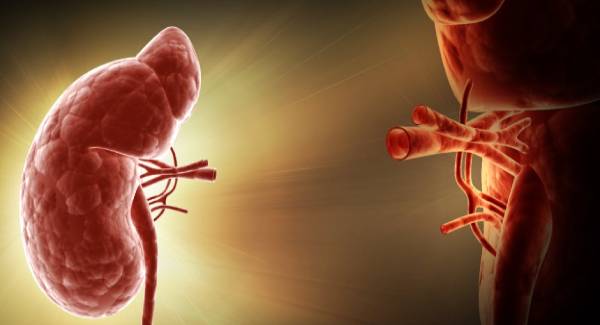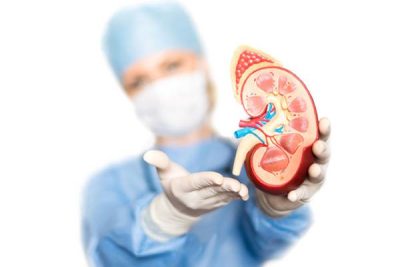ترجمه نوشته:

Kidney Transplant in Iran; Global Expertise, a Reliable Experience in Shiraz
What is a kidney transplant and why is it performed?
Kidney Transplant is an advanced treatment for patients with end-stage renal disease (ESRD) in which a healthy kidney from a living or deceased person is transplanted to a patient in need. This procedure replaces dialysis and restores normal kidney function to the body. The result is increased quality of life, improved physical and mental performance, and reduced dependence on invasive treatments.
Who are good candidates for a kidney transplant?
People with advanced kidney failure, especially those with kidney function below 15% or undergoing dialysis, are prime candidates for this procedure. The patient must be physically and mentally stable and able to tolerate post-transplant treatments.
Suitable age for kidney transplant
Typically, patients between the ages of eighteen and seventy can undergo a kidney transplant. In special cases, children or the elderly with stable conditions may also be eligible, as determined by a doctor.
Kidney transplant stages
Complete patient evaluation including blood tests, imaging, immune and cardiac evaluation
Finding a compatible donor with HLA, crossmatch, and PRA testing
Preparing the patient and donor for surgery
Surgery performed by an experienced surgical team
Postoperative care including anti-transplantation medications and regular clinical monitoring
Why kidney transplant in Iran?
Iran is considered one of the leading countries in the region with several decades of successful experience in the field of kidney transplantation. The success rate of this surgery in Iran is more than ninety percent in the first year and about seventy percent in the fifth year. This statistic shows the expertise of the surgeons, the quality of treatment, and post-transplant care.
Affordable cost and access to medicine
The cost of kidney transplant in Iran is much lower than in European and Gulf countries, while the quality of treatment is at an international level. Immunosuppressive drugs such as tacrolimus, mycophenolate, and prednisolone are also readily available and affordable.
Why Shiraz; the hub of kidney transplantation in Iran
Shiraz is one of the most prominent medical centers in the country, with an international reputation, especially in the field of organ transplantation. Shiraz Namazi Hospital and Shiraz Organ Transplant Hospital, as pioneers in kidney transplantation in the Middle East, perform hundreds of successful operations annually. Specialized teams including nephrologists, surgeons, psychologists, and special nurses follow all stages of treatment in an integrated manner.
Advantages of Shiraz for international patients:
Doctors with international experience, advanced equipment according to global standards, reasonable cost with world-class treatment quality, diverse welfare and accommodation services.
Advantages and disadvantages of kidney transplant
Advantages:
Complete improvement in quality of life, no need for dialysis, return to normal activities, increased lifespan compared to dialysis patients.
Disadvantages:
Possibility of transplant rejection, lifelong dependence on immunosuppressive drugs, follow-up and medication costs (although it is very affordable in Iran)
Lifespan of a transplanted kidney and the right time to act
If the transplant is from a living donor, the kidney can function for fifteen to twenty years, and in the case of a deceased donor, between ten and fifteen years. Also, performing the transplant before starting dialysis can lead to better results.
Hospitalization and recovery period
The patient is usually hospitalized for five to ten days, and the initial recovery period lasts between three and six weeks. Necessary education about medication, nutrition, safety precautions, and medical follow-up is also provided in full.
Complete Kidney Transplant Package with Arvan Health Tourism Group
Arvan Health Group in Shiraz, with a successful experience in medical tourism, has provided a comprehensive and personalized kidney transplant package for domestic and international patients:
Complete coordination with the best hospitals and surgeons in Shiraz, receiving medical records and pre-trip consultation, accommodation in luxury hotels with easy access to medical centers, transportation services, dedicated medical interpreter and guide, medication follow-up and post-operative care, tourist and welfare services for the patient and companions.
A safe, professional and pleasant experience in Shiraz
Shiraz is not only a reputable medical center, but also a peaceful destination for healing and enjoying your trip. Strolling through the Eram Garden, visiting Hafez and Saadi, visiting Persepolis, experiencing local cuisine, and being in a safe and cultural environment will turn your medical trip into a sweet memory.
To begin your treatment journey, contact Arvan Health Group; we are with you from the first consultation to the most complete care.
General information
About kidney transplant surgery
Anesthesia:
general anesthesia
Recovery period:
Three to six weeks
Duration of surgery:
Three to five hours
Duration of hospitalization:
Four to five days
Return to normal life:
Seven to eight weeks
Cost:
-
Arvan treatment packages
Click to check Arvan packages

To book an appointment and receive a free consultation, contact us now.
Frequently Asked Questions About Kidney Transplant Surgery

The answer to this question is yes. Although it takes time to regain your strength and endurance after a kidney transplant, you will eventually be able to resume your normal daily activities. Walking is a great exercise to maintain muscle strength and power. You should start walking for 5 to 10 minutes a day after surgery and then slowly increase your walking time. Avoid strenuous exercise such as running, tennis, and weightlifting for at least two months after surgery.
You should not smoke after a kidney transplant. Your medical team will let you know when you can start driving again, going to work or school, and traveling.
On average, transplanted kidneys last between 10 and 12 years.
Kidney rejection is caused by the body's immune system's reaction to foreign substances. Although there are tests to show the likelihood that your body will reject the new organ, there is no way to be sure whether or not your body will accept the new organ.
The answer to this question is yes. Depending on your medical history, you may be able to undergo dialysis, hemodialysis, or peritoneal dialysis.
The answer to this question is yes. You may want to be evaluated for a kidney transplant before starting dialysis. After being evaluated and placed on a waiting list, you will be placed on the waiting list when your kidney function drops below 20 percent.
Otoplasty surgery is performed on children under the age of five who are born with large, prominent ears. Some surgeons also perform the surgery on children over the age of five.
Articles related to kidney transplant
✅ Complete travel guide to Qalat Village, Shiraz | A mountain tourism gem with a waterfall, church, and eco-lodge
-
Posted by
arwan.ad
- 0 comments
“Journey to the heart of Azeri culture; treatment, relaxation, and a unique experience with Arvan Health Tourism Group”
-
Posted by
arwan.ad
- 0 comments
Advantages and disadvantages of tummy tuck😱
-
Posted by
arwan.ad
- 0 comments





